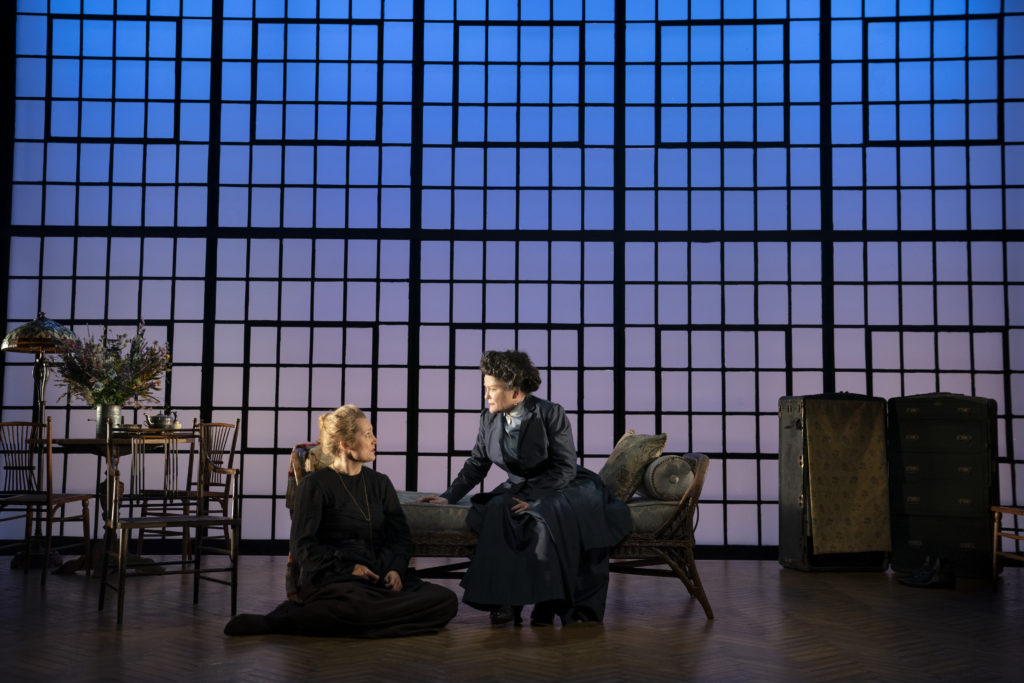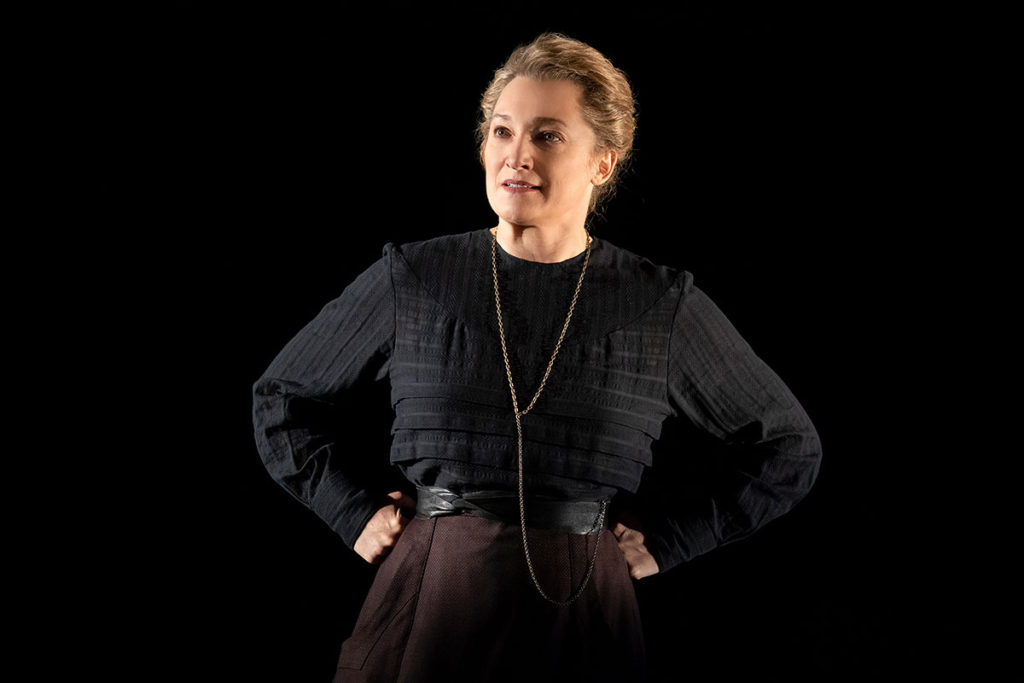Francesca Faridany is currently playing the titular character in Lauren Gunderson’s “The Half-Life of Marie Curie,” the story of the pioneering scientist’s friendship with engineer Hertha Ayrton. Gaye Taylor Upchurch directs the Audible/Minetta Lane Theatre production.
Known for her work in Broadway’s “The Curious Incident of the Dog in the Night-Time” and “Macbeth,” Faridany is performing opposite Kate Mulgrew (“Orange Is the New Black”). “The Half-Life of Marie Curie” is a fierce exploration of two women who were ahead of their time. It’s set during the summer of 1912, when a scandal threatens to overshadow Curie’s second Nobel Prize win.
Faridany won the 2013 Helen Hayes Best Actress prize for “Strange Interlude” and has appeared in plays around the world. She played the title role in her adaptation of Arthur Schnitzler’s “Fräulein Else,” and has had roles in screen projects including “Black Panther,” “Homeland,” “Law & Order: SVU,” and “ER.”
We chatted with Faridany about portraying Marie Curie and what it’s like to be in a play powered by women both on and off stage.
“The Half-Life of Marie Curie” closes December 22.
W&H: I’d like to start by talking about “The Half-Life of Marie Curie,” a play that was written by a woman, directed by a woman, costumed by a woman. A woman also created the set. How important is working with women to you?
FF: It’s essential for me to work with women. When we started this process, I found myself in a room full of basically 98 percent women, and it felt incredible. I realized that it remains very unusual to find myself in a place with that many women. That’s the biggest thing about this process that has been so impactful to me.
W&H: What else attracted you to playing the part of Marie Curie?
FF: Not knowing much about her, plus the fact that she was extraordinary, drew me to the play.
W&H: The play seems very relevant to today, very feminist. Lauren Gunderson is known for works that put women front and center. Can you talk about your collaboration with her?
FF: Lauren was so open throughout the process. Right from the beginning, it was evident that this play was a collaborative event for Kate and me as actors. Even before we signed on, Lauren and GT [director Gaye Taylor Upchurch] told us that they hoped that we would be a part of the script process. It was one of the first things that happened in the room. Lauren is not very precious about her writing. She’s got enough confidence in herself that she knows the story, and she loves the story and these women.
There was just a significant amount of respect and support between all of us. We were able to go with our guts and say what we needed to say about parts of the play that didn’t work. We would all talk in an entirely egoless way. I’ve never had that experience where you could be so hands-on with a writer or director. There was a great deal of honesty and work in the room. It was just about the work and telling the best story possible.

Faridany and Kate Mulgrew in “The Half-Life of Marie Curie”: Joan Marcus
W&H: What kind of direction does Gaye Taylor Upchurch provide?
FF: GT set the tone in the room. There was just a tremendous amount of openness and straightforwardness that comes from GT. She set the tone for a great space we could all be in without drama. There’s plenty of drama in the right place, not in the process of making the drama.
It was just incredibly supportive, and a giving environment. I can say that it is 100 percent her feat. She was vital in creating that environment.
W&H: You and Kate Mulgrew’s character bond through both your brilliance and the ways the patriarchy slights them for being women. Curie was regarded as the property of her husband and not legally a person. These feel very much like issues we are still dealing with today.
FF: Just by bringing up these particular issues, Lauren may not have set out to write about a play about these specific women, but together in a room, that is precisely what these characters are facing. Over and over again, I was mind-blown at what they accomplished, and that they did it 100 years ago, in the face of the world in which they were living. It’s stunning to have accomplished as much as they did.
I read a few biographies, one written by Curie’s daughter called “Madame Curie: A Biography,” and another by Barbara Goldsmith called “Obsessive Genius.” Both of these books tracked Marie’s life. I was so amazed by what Marie Curie accomplished. I continue to read a bit every day and find her life downright staggering.
W&H: Can you please talk about acting alongside Kate Mulgrew?
FF: She’s fantastic. She’s a force of nature in her right. We got on so well from the beginning, which made it easy. I hadn’t laughed that much in the rehearsal process in such a long time. The scene in which we were drunk laughing, for example, lends itself to our relationship. Kate is just so bloody good and has a great style about her and an ability to drive the play forward.
W&H: Much of the play is conversational, but also very visual as your interaction with her is so electric, and the final scene is so memorable. How did you translate your performance to audio for Audible?
FF: I had done one book on tape and one online game voiceover. It had been a while since I was in a sound studio. Kate had done a lot more recording than I had. You can feel a little confined in a studio with the headphones on, in front of a mic. But for me, it was freeing because we had already spent two-and-a-half weeks in the rehearsal room working on the play in another way.
Working for Audible is fantastic. Don Katz is the head of Audible Theater. He put the Emerging Playwrights program in motion. There are five incredible producers at Audible Theater, including Kate Navin, Emilia LaPenta, Rachel Sussman, Jessica Amato, and Franki De La Vega, who I worked with on “The Curious Incident of the Dog in the Night-Time.” They are just phenomenal women. I could tell right away that they were serious about our play.







